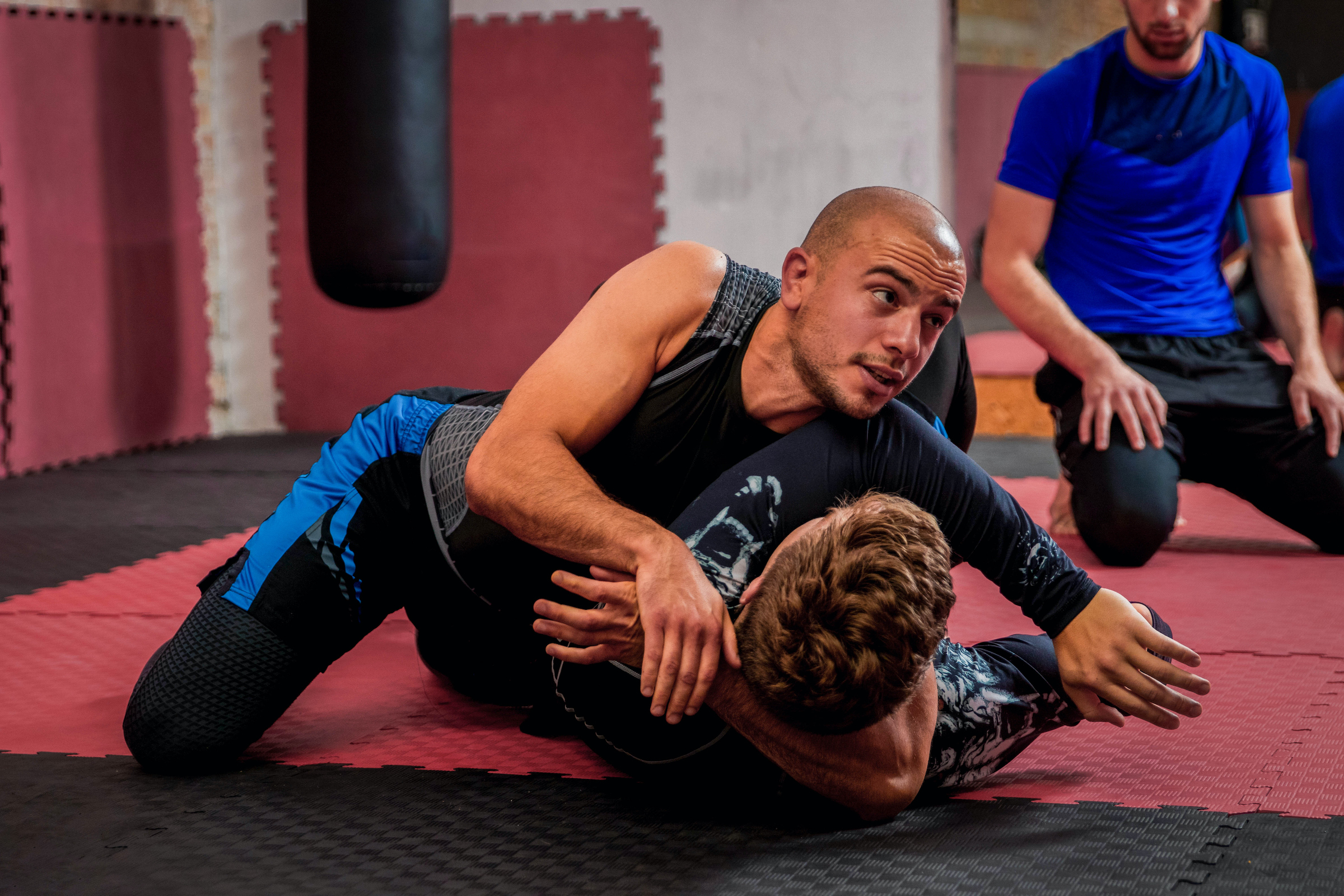
During a particularly awful period of nonstop anxiety spiraling, I begged my therapist for a tangible solution, something I could do to make my situation better. He told me to get on the treadmill three times a week for 30-45 minutes. Exercise, specifically cardiovascular exercise, has been shown to ease anxiety in research studies.
Desperate to change the awful feelings I was experiencing, I took his advice to heart. I went to the gym every day and ran mile after mile. If it was 8 p.m. on Saturday night and I was too anxious to see friends or go out to dinner with my wife, I stepped on the treadmill, fired up a podcast, got my heartrate up to 120, and put some more miles in.
The result after three months of this: I lost 30 pounds. My anxiety? It was a little bit better. Don’t get me wrong—exercise helped, but it wasn’t the solution to all my problems. It was, though, a temporary relief from some of the symptoms I’d been facing. Moving my body released some mood-boosting endorphins. Plus, during the hour or so I ran on my hamster wheel, I wasn’t worried about everything I did wrong in the past or everything that could go wrong in the future. That present moment awareness felt a lot like relief. My anxiety still interfered with my quality of life, but instead of only being able to hide in my apartment in a cocoon of fear, I could now add the gym to my short list of safe spaces.
A Way to Take Control
It wasn’t the first time exercise had improved my mental state. In fact, when I think back over the past two decades, exercise was a large part of my lifestyle during most of the times I was able to put my anxiety aside. When I practiced Brazilian Jiu Jitsu four times a week, I felt more in control and more resilient. BJJ is a grappling martial art derived from traditional judo and other disciplines, and winning means forcing your opponent to tap out. More than just a tough cardio workout, BJJ put me in uncomfortable situations (such as a triangle choke or being mounted) and made me think and work my way out of them. You must stay calm, focused, and rely on your training to maneuver out of a painful hold. For an anxious person, this is both a nightmare and a valuable life skill.
One of the best therapies for anxiety I’ve experienced was training with Christian Montes, a BJJ Black Belt and Gracie Certified Instructor. He was aware of my post-traumatic stress disorder (PTSD) and made me—and the rest of the students—feel like I was in a safe, controlled environment even during combat.
Two Steps Forward, One Step Back
On the other hand, sometimes exercise can mimic the symptoms of a panic attack. During a high-intensity interval training (HIIT) session, my heart rate shot up and I had a hard time catching my breath—totally normal for anyone doing intense exercise. And sure enough, my post-PTSD mind and body recognized the familiar effects of fear, so they did what they usually do—turned them into a full-blown panic attack. This is actually a thing, backed up by a study. Ain’t that a bitch?
My advice for people who have frequent panic attacks and want to increase their cardio is to be very kind to yourself. Understand that these uncomfortable feelings are normal. Most people run out of breath at the gym! Remind yourself that they’re not always the starting signs of a panic attack. (It took me some time to get that straight, but if I can get there, so can you.)
Exercise is an important part of living your best life with an anxiety disorder, but it’s only one part. A Spin class will not stop all your panic attacks. But it just might help you squelch the one you have brewing right this minute. And if not, well, you’ll be a stronger, faster, leaner version of yourself flipping out, which has to count for something, right?
Readmore : How to Deal With Anxiety Attacks
Source: www.healthcentral.com
